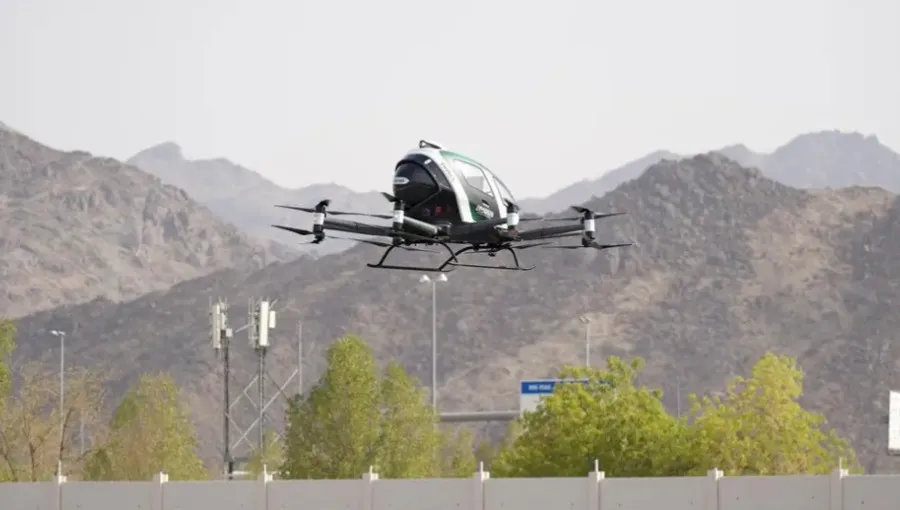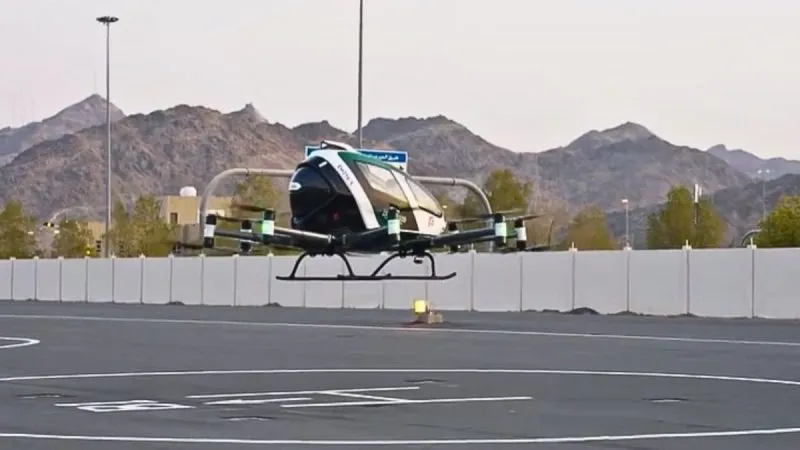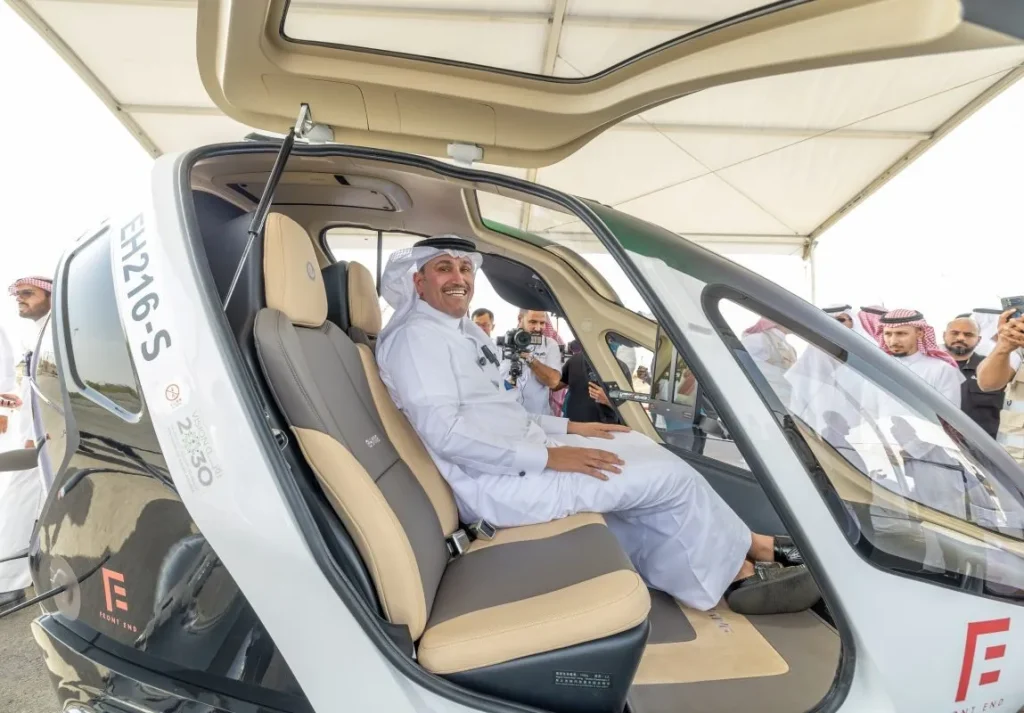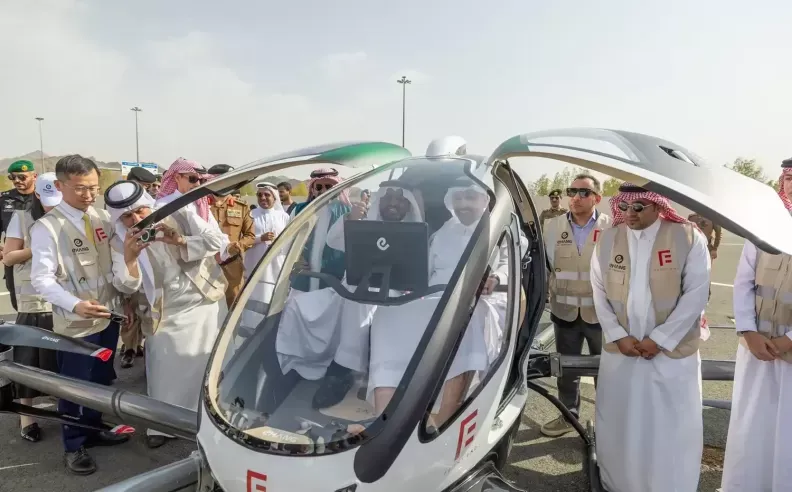Saudi Arabia has launched its first autonomous air taxi flight service, aiming to revolutionize the transportation of Hajj pilgrims. The inaugural tests featured the EH216-S, an electric vertical takeoff and landing (eVTOL) aircraft developed by the Chinese company EHang. This pilotless vehicle is touted as the world’s first air taxi licensed by a civil aviation authority, highlighting a significant leap in advanced air mobility.

The historic flight was conducted in Mecca, following special approval from the General Authority of Civil Aviation (GACA). EHang, in collaboration with its local partner, Front End, showcased the two-seat autonomous aircraft. Front End is playing a crucial role in aiding EHang to navigate the regulatory landscape in Saudi Arabia and secure approvals for their eVTOL model.

Abdulaziz Al-Duailej, the President of GACA, expressed that this trial is a major advancement in integrating Advanced Air Mobility (AAM) solutions into the kingdom’s aviation infrastructure. It reflects Saudi Arabia’s commitment to adopting cutting-edge technology to enhance transportation and logistical capabilities.
This trial follows a similar demonstration by EHang in May, where the EH216-S was showcased in Abu Dhabi alongside other models like the EH216-F, designed for high-rise firefighting, and the EH216-L, purposed for aerial logistics. These demonstrations underscore EHang’s ongoing efforts to expand the applications of their eVTOL technology across different sectors.

The EH216-S has already achieved significant certification milestones. It received its type certificate from Chinese authorities in October 2023 and approval for series production in April 2024, making it the first unmanned eVTOL to receive such a certification. This certification is a crucial step towards enabling commercial passenger-carrying UAV operations in Saudi Arabia, pending GACA’s validation.
Aligning with Saudi Vision 2030, this project aims to transform the country into a “Connected Kingdom” and open up new growth opportunities. Majid Alghaslan, Chairman and CEO of Front End, noted that this initiative will not only facilitate pilgrim transport but also support various functions, including the delivery of medical equipment, emergency travel, and cargo logistics.
Saudi Arabia’s vision for the future of air mobility includes a broad range of applications. The country plans to use air taxis to ease the movement of pilgrims between sacred sites, provide logistical support for cargo, and carry medical equipment during emergencies. The trials conducted in Mecca are essential to establishing a regulatory framework for the safe deployment of these pilotless eVTOL aircraft.

Huazhi Hu, Founder, CEO, and Chairman of EHang, highlighted the significance of the debut flight in Saudi Arabia. He described it as a critical step in the company’s international expansion and a major milestone in the global advancement of UAV technology. The EH216-S, he noted, showcases the potential of EHang’s pilotless eVTOL solutions for widespread adoption in the Middle Eastern market.
The EH216-S is designed to be a versatile and efficient urban transportation solution. It can carry two passengers and has a maximum cargo capacity of 485 pounds (220 kilograms). Its compact dimensions—1.85 meters in height and 5.63 meters in width—make it ideal for navigating urban environments. The aircraft features collapsible limbs, which minimize its parking space requirements. It can achieve speeds of up to 80 mph (130 kph) and has a range of over 20 miles (35 kilometers), all controlled by EHang’s advanced autonomous command and control system.
